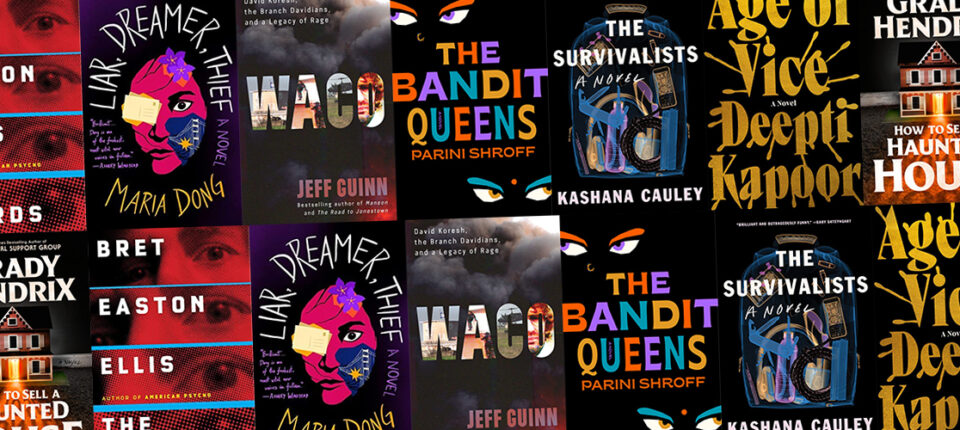A look at the month’s best reviewed crime novels, mysteries, and thrillers.
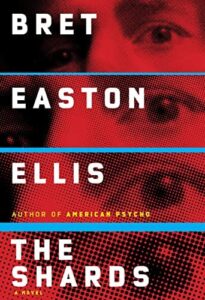
Bret Easton Ellis, The Shards
(Knopf)
A genuine literary event … Others before Ellis have attempted to retool the serial narrative for the internet age. Nothing has felt quite as thrilling as Ellis’s year-long, hour-by-hour performance of The Shards … Any lingering uncertainty that its brilliance lay more in the recitation than the writing can be dispensed with. The Shards isn’t just Ellis’s strongest novel since the 90s, it’s a full-spectrum triumph, incorporating and subverting everything he’s done before and giving us, if we follow the book’s ingenious, gleefully self-aware conceit, nothing less than the Ellis origin story”
–Sam Byers (The Guardian)
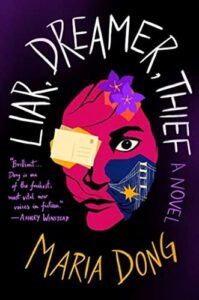
Maria Dong, Liar, Dreamer, Thief
(Grand Central Publishing)
“Masterfully harrowing … A completely absorbing novel, both a terrifying whodunit thriller and a heart-wrenching drama about mental health, family, loneliness and moral relativism … This exceptional debut novel showcases relentless momentum, horrors, compassion and an unforgettable protagonist: not to be missed.”
–Julia Kastner (Shelf Awareness)
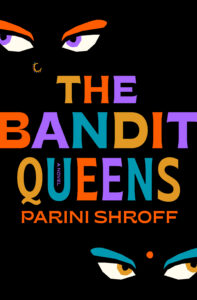
Parini Shroff, The Bandit Queens
(Ballantine)
“Shroff’s debut novel is at once immensely sad—women want Geeta to help them get revenge on rapists and even a husband who threw acid on his wife’s face—but it has laugh-out-loud moments too, as the women learn to stand up to the men in their village, and Geeta forms a relationship with a good man and learns to make friends … This is a deeply human book, with women surviving and overcoming in their culture while still remaining a part of it.”
–Jennie Mills (Library Journal)
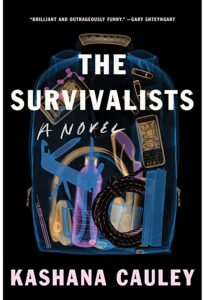
Kashana Cauley, The Survivalists
(Soft Skull)
“…[a] lethally witty debut … One might expect a novel about gun-toting, conspiracy-minded loners to lampoon its key players, but the book succeeds because Cauley appears as curious and empathetic toward the survivalists as she is toward her protagonist … Cauley’s prose comes at an accelerated clip that will at times have readers jumping back a few paragraphs to orient themselves. But devoid of pretense or judgment, her writing style reflects Aretha’s ambivalence, and the narrative’s underlying philosophical inquiries … Cauley, a former writer for The Daily Show With Trevor Noah, displays an enviably versatile sense of humor…The novel is most fun when her wit bolsters the narrative’s sociopolitical underpinnings.”
–Laura Warrell (New York Times Book Review)

Deepti Kapoor, The Age of Vice
(Riverhead)
“Forget the fireworks in New York, London and Dubai. The most dazzling explosions to herald 2023 come from Deepti Kapoor’s novel Age of Vice … Swinging from the hovels to the palaces of contemporary India, this hypnotic story poses a horrible dilemma: For days, I was torn between gorging on Age of Vice or rationing out the chapters to make them last. Finally free from the book’s grip, now all I want to do is get others hooked … This is a rare case of a book bounding as high as its hype … Kapoor moves back and forth through time and up and down the social ladder. It’s a complicated but never confusing structure that unravels some mysteries while spinning new ones. Good as she is at ripping up the pages with acts of violence, she’s even more sly about pulling us into these characters’ lives.”
–Ron Charles (Washington Post)
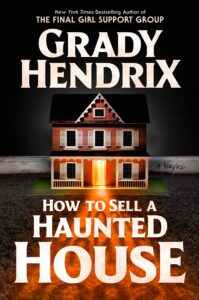
Grady Hendrix, How to Sell a Haunted House
(Berkley)
“Grady Hendrix’s horror novels are a gateway drug to the genre, bridging the warm and cozy…with the harder stuff … By weaving violence, family trauma and humor, Hendrix creates a texture that engages the reader emotionally and viscerally … Hendrix’s humor is also on display … Gripping, wildly entertaining.”
–Danielle Trussoni (New York Times Book Review)

Jeff Guinn, Waco: David Koresh, the Branch Davidians, and a Legacy of Rage
(Simon and Schuster)
“Guinn was uniquely suited to write this book, having previously written about Charles Manson and Jonestown. He is steeped in the apocalyptic lore that drives many cults … Guinn does an excellent job laying out the circumstances that made Waco possible. If the reader is left wondering anything, it’s likely about the fate of the ATF and FBI decision-makers who caused the debacle in the first place. It would be fascinating to know how (or if) these figures reflected on the tragedy in the years that followed. In total, Waco is a compelling if disturbing read. Once you finish, you’re unlikely to fully trust organized religion—or the U.S. government—ever again.”
–Chris Rutledge (Washington Independent Review of Books)

